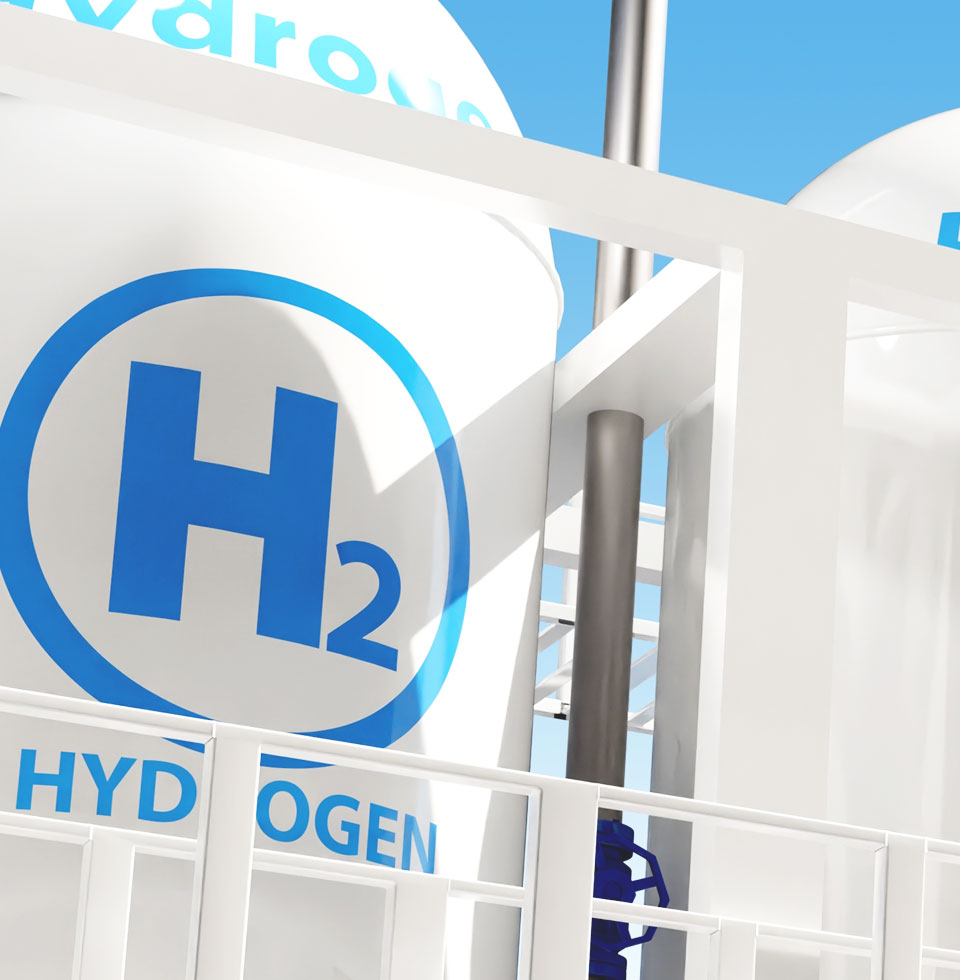Main Menu
Main Menu
- Resource Regeneration -
Regeneration
Challenges and Solutions | Circular Economy | Regeneration | Hydrogen Energy Generation and Diverse
Regeneration
What BIOTECHWORKS-H2® Envisions as Regeneratio
Building a Hydrogen Energy Circulation System
The concepts of hydrogen energy and regeneration are pivotal when it comes to utilizing hydrogen as an energy source. Hydrogen energy typically involves the conversion of hydrogen into electricity, heat, or mechanical power using fuel cells or turbines, ultimately resulting in the generation of carbon-neutral energy. Regeneration, on the other hand, refers to the re-production of hydrogen, which entails the process of electrolyzing the water produced during hydrogen utilization back into hydrogen. In this manner, hydrogen becomes a part of a circular energy system (regeneration energy).

The Potential of Hydrogen Energy
Hydrogen possesses immense potential as it can be produced from a variety of sources, contributing to stable and diversified energy supply. Additionally, hydrogen can be utilized as a carbon-free energy source when combined with renewable energy or carbon capture and utilization technologies. Moreover, hydrogen can be converted not only into electricity but also into other chemicals like ammonia and methanol, offering a wide range of applications. Its ability to be stored and transported makes it suitable for long-term energy storage and international energy trade.
Pursuing the Future
Promoting Hydrogen Energy Regeneration
Burning No Waste
- We at BIOTECHWORKS-H2® Project have developed an environmentally friendly and cost-effective energy technology that eliminates waste incineration. We transform waste materials through high-temperature oxygen and steam into synthetic gas, which can be converted into carbon-neutral energy for electricity, heat, power, and fuel, aiming for genuine regeneration through low-cost hydrogen production.
- In France, the city of Paris is striving for decarbonization of public transportation. They have plans to introduce 600 fuel cell buses by 2024. These buses, manufactured domestically in France, use low-pressure tank systems and can travel over 300 kilometers on a single fill.
- On an international scale, countries like Australia and Saudi Arabia are planning to export hydrogen and ammonia produced from renewable energy sources to countries like Japan and South Korea.
Exploring the Future
Conclusion
In these plans, BIOTECHWORKS-H2® Project aims to achieve carbon-neutral energy trade by utilizing low-cost renewable resources and establishing an international hydrogen supply chain.
Your participation will save the Earth.
We are seeking like-minded companies to join us.
Through our cutting-edge technology, we can transform organic materials, the source of life, into renewable energy, hydrogen, without disposing of them. This project allows us to establish a circular economy, maintaining the inherent nature of organic materials in a sustainable and effortless manner.
The conventional approach to waste management, primarily focused on physical processes like incineration, has proven ineffective in reducing CO2 emissions over the years and has kept us trapped in the mindset that “waste equals trash.”
We are here to fundamentally change that perception.
© BIOTECHWORKS-H2®


